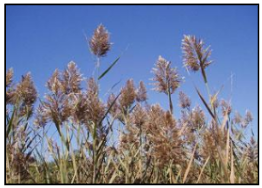"Slow the Spread" Local Fund Pool

FY2026 Orleans County NRCS Local Fund Pool - Slow the Spread: Invasive Plant Control
OCNRCD conducted surveys and hosted Local Working Groups (LWG) this year and identified that invasive species support once again needs to be one of the priorities for our NRCS Local Fund Pool.
Problem Statement/Need based on Community Input:
- The spread of invasive species threatens local ecosystems, native biodiversity, water quality, and increases erosion
- There's a need to target smaller infestations and educate the public
FY26 Applcation Due Date: Aug 22, 2025
Goals: Work with Orleans County CISMA to minimize spread by depleting species of concern: phragmites, bush honeysuckle, Japanese knotweed, common barberry, and glossy buckthorn.
Project Area: Orleans County, Vermont
Core Conservation Practices proposed to address need:
- Brush Management (314)
- Herbaceous Weed Treatment (315)
- Conservation Cover (327)
- Tree and Shrub Establishment (612)
- Woody Residue Treatment (384)
- Tree-shrub Site Preparation (490)
Brief Timeline of Implementation:
- Summer 2025: Outreach and engagement with landowners
- By December 2025: Assist at least five landowners with assessments and conservation practice planning
- By May 2026: Develop and provide project management services for to implement 4-6 local fund pool conservation plans
- Ongoing (3-5 years and potentially beyond): Project implementation continues and OCNRCD continues to work with NRCS to maintain funding for this priority.
Available Funding in Federal FY2026: $200,000
Project Ranking Priorities
- Is the application addressing a recently identified infestation?
- Is the application addressing priority species?
- Does this application include more than three practices?
- Is the applicant adjacent to a property owner that is also addressing invasives?
- Does the application include all five core practices?
- Is the applicant a new NRCS customer?
- Does the applicant produce improved riparian and forest lands?
- Is the application addressing multiple priority species?
Applicants DO NOT need to answer yes to all of the Project Ranking Priorities to apply. However, the more priorities that are addressed, the more likely the application will be selected for funding.
NRCS Application - CPA_1200_V10.2024.pdf